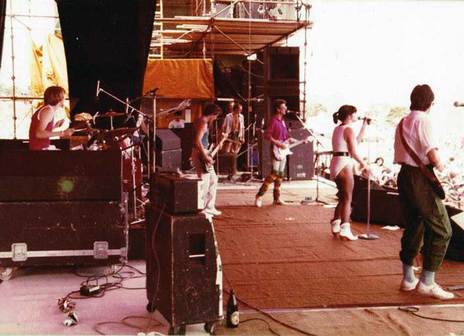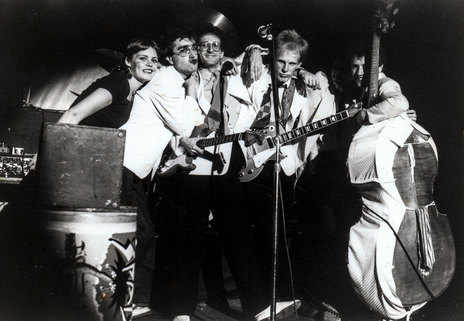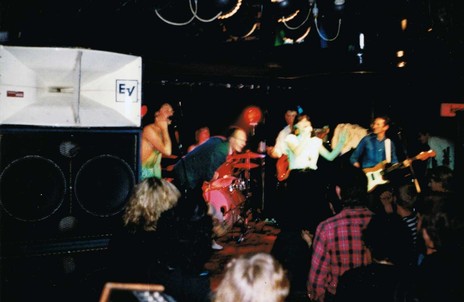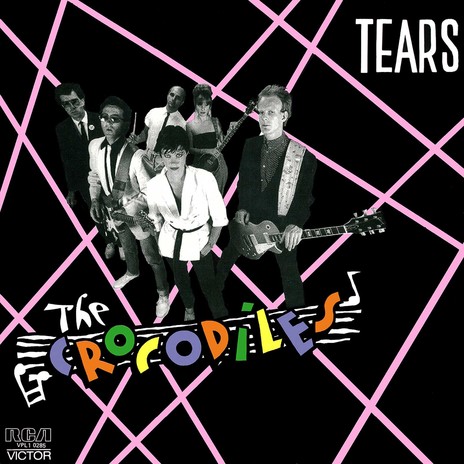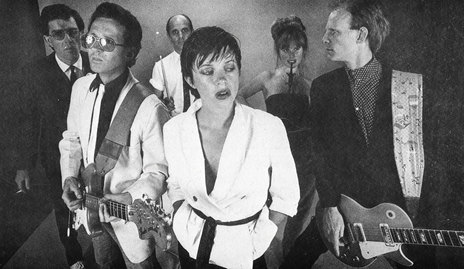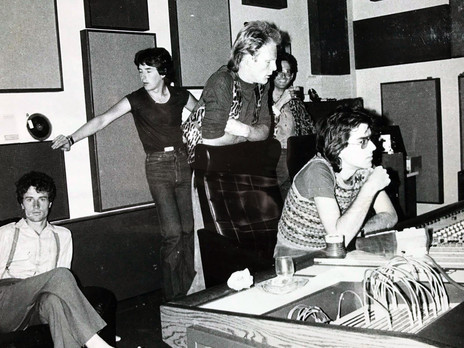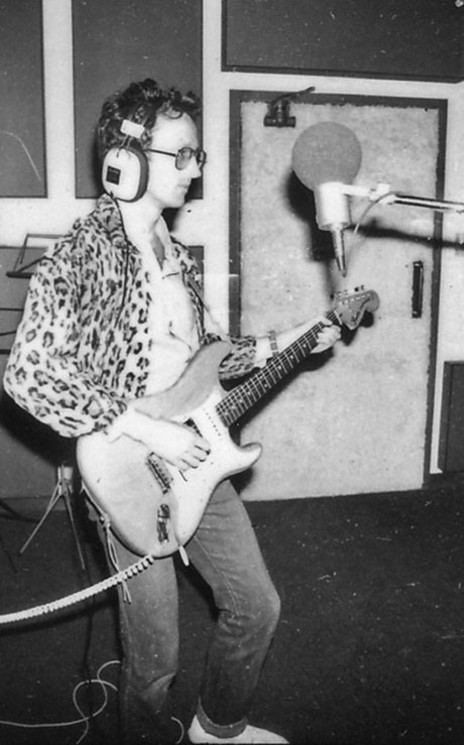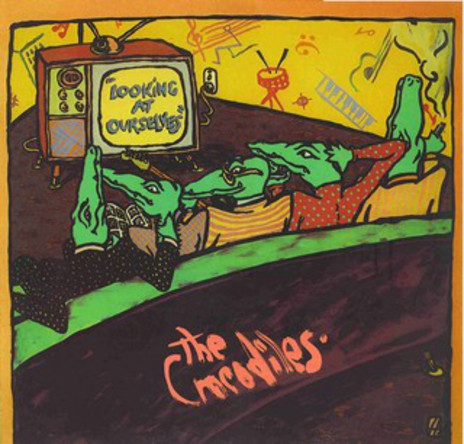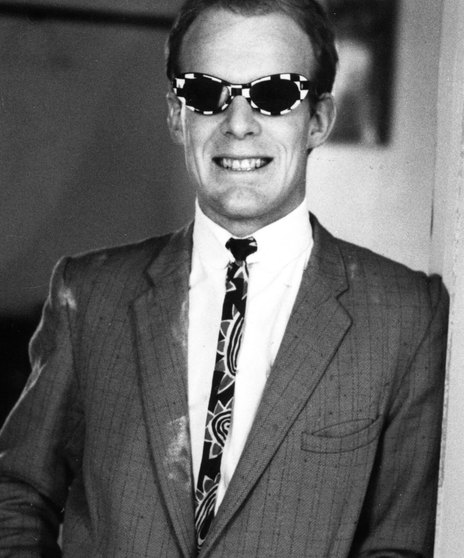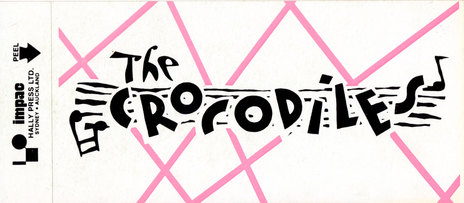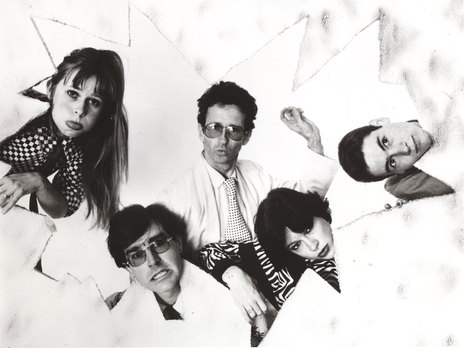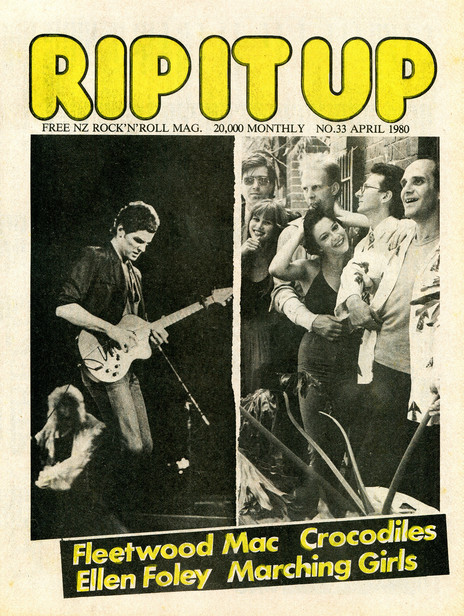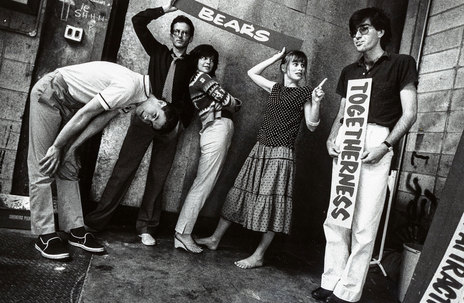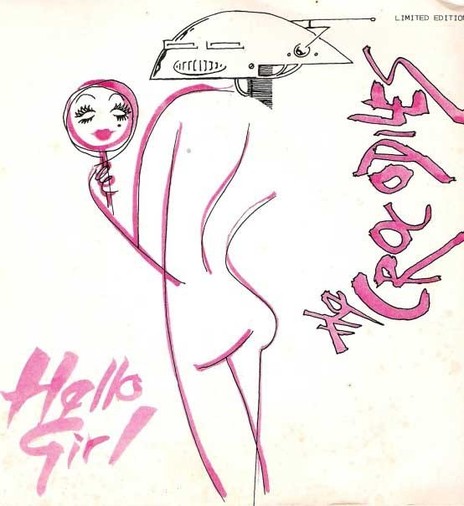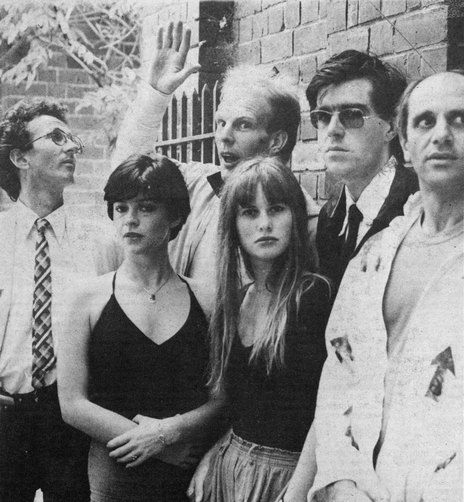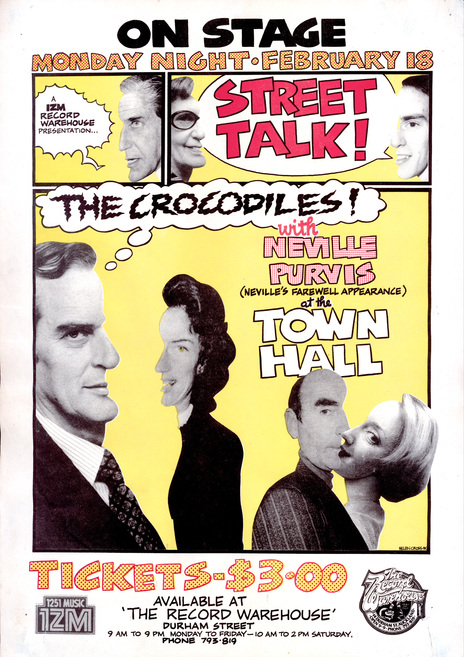As it turned out, the bus belonged to actor/drummer Bruno Lawrence, whose chief creative outlet at the time was BLERTA – Bruno Lawrence’s Electric Revelation and Travelling Apparition – an anarchic ensemble of jazz musicians, rock and rollers, actors and hangers-on, who travelled the land, gypsy-style, in their magic bus. Flaws talked his way into the band by claiming he had a wizard’s act. He wound up playing guitar and writing songs for the band.
By the mid-70s BLERTA had disbanded, but Flaws and Lawrence were soon playing together again in Spats. Almost as eclectic as BLERTA, with a repertoire that stretched from Django Reinhardt to Frank Zappa, the line-up also included future Crocodiles Peter Dasent and Tony Backhouse.
Not surprisingly, the audience for Spats’ wacky jazz-rock was limited, and so The Crocodiles was created, with the idea of channelling the group’s imagination and skills into a more commercial package. The recent rise of “new wave” groups such as XTC and Elvis Costello and the Attractions, along with Bowie’s late-70s recordings and The Beatles at their most psychedelic, provided the template. Flaws also hoped that a band whose primary focus was making hit records would provide a relief from the endless touring Spats had been dependent on for their survival.
Deciding a female singer would add to the new group’s pop appeal, Flaws poached Jenny Morris from Wellington all-girl band Wide Mouthed Frogs. Fellow Frog Tina Matthews would also join the line-up on bass.
Screenwriter and comedian Arthur Baysting, who had previously written songs for Dragon and the Red Mole theatre troupe, made an essential contribution, collaborating on new material with Flaws, Dasent and Backhouse. A Flaws-Baysting composition, ‘Tears’ became the group’s first single and, in 1980, a Top 20 hit.
Tears was also the name of The Crocodiles’ first album, released the same year. The arrangements were detailed and playful. Pianist Peter Dasent wove into his solos sly quotes from across the musical spectrum, Backhouse brought complex vocal harmonies comparable to those of The Beatles or Beach Boys, while Lawrence and session bass player Mark Hornibrook, with their shared background in jazz, provided a rhythmic foundation that was firm yet flexible.
Some of the songs harked back to Spats, or even earlier. One of Flaws’ songs, ‘All Night Long’, borrowed the bridge of a song Backhouse had written and recorded almost a decade before with Mammal. Another, ‘It’s The Latest’, was based on a jingle for sports shoes Backhouse had recorded years before. Others, such as ‘Any Day Of The Week’ and ‘Whatcha Gonna Do’ were more recent, and were tailored to the voice and persona of frontwoman Jenny Morris.
One song, ‘Ribbons Of Steel’, was co-written with Kim Fowley, credited on the album as “Animal God of the Streets”, and thanked for “getting it all started.” Fowley was a Californian impresario whose previous achievements included devising all-girl trash-rock group The Runaways, writing ‘Nut Rocker’, and recording the 1960 novelty hit ‘Alley Oop’ as The Hollywood Argyles. He had encountered The Crocodiles while on a talent-scouting trip to New Zealand, and offered to produce them. Though the task ultimately fell to Glyn Tucker Jr, some of Fowley’s flamboyant influence can be felt in the final product.
The album was released in Australia and parts of Europe. There was talk of relocating to Holland. Yet in spite of Flaws’ stated moratorium on touring, he soon ended up back on the road with his new band. Along the way they had picked up a manager, former Split Enz bassist Mike Chunn, who found them a lot of work performing in high schools – the heart of their demographic since the success of ‘Tears’.
First to bail was Bruno Lawrence. Cinema was beckoning and he would soon score lead acting roles in acclaimed feature films Smash Palace and Utu. He was replaced in mid-1980 by Ian Gilroy, formerly of Auckland’s Whizz Kids. By the time the Crocodiles returned to the studio near the end of the year, Flaws had also left the band.
Released in November 1980, Looking At Ourselves was a disappointing follow-up to the group’s impressive debut. Though it included some good songs – including several co-written by the departed Flaws, who also painted the cover – the production was thin, while the rhythm section of Gilroy and Matthews sounded brittle compared to the solid and seasoned playing of Lawrence and Hornibrook.
Before the year was out, Gilroy too had left (to join The Swingers), followed closely by Matthews and Dasent. By the time The Crocodiles headed to Australia in 1981, only Backhouse and Morris remained, joined by guitarist Rick "Rikki" Morris, bassist Jonathan Zwartz and drummer Barton Price.
Though this new line-up recorded a good single (‘Hello Girl’, with Rick Morris on lead vocals, backed with ‘Romantic As Hell’, a Tony Backhouse original custom-made for Morris) the original spark had gone.
Jenny Morris and Tony Backhouse remained in Australia, where Morris worked as a backing singer for INXS before launching a successful solo career, while Backhouse founded a gospel choir, The Café Of The Gate Of Salvation, and became an authority on a cappella singing. Fane Flaws and Peter Dasent reunited as I Am Joe’s Music for a self-titled 1983 album of quirky, Zappa-influenced pop, and have continued to collaborate on projects such as the children’s book and stage show The Underwatermelon Man.
The song ‘Tears’ has had a long life. It has been recorded in a variety of cover versions, and was sampled by Headless Chickens for their 1992 hit ‘Cruise Control’. Jenny Morris made a new recording of the song, which can be found on her 2004 compilation Listen: The Very Best Of Jenny Morris. In 2001 it was voted by members of APRA and an invited academy No.26 in a chart of New Zealand’s top songs of all time.
--
Photographs from the Crocodiles' gig at Sweetwaters, January 1981
